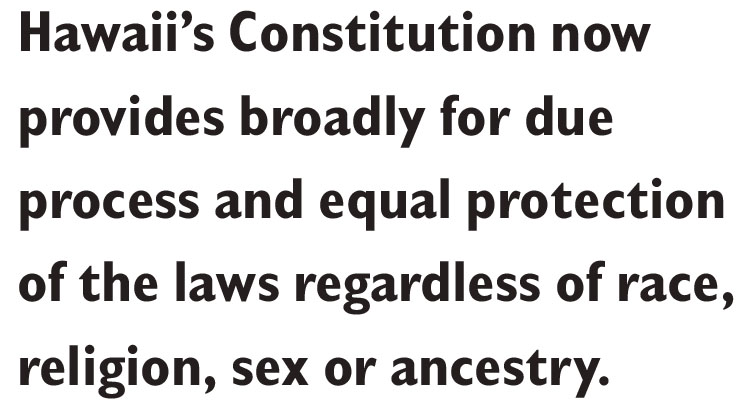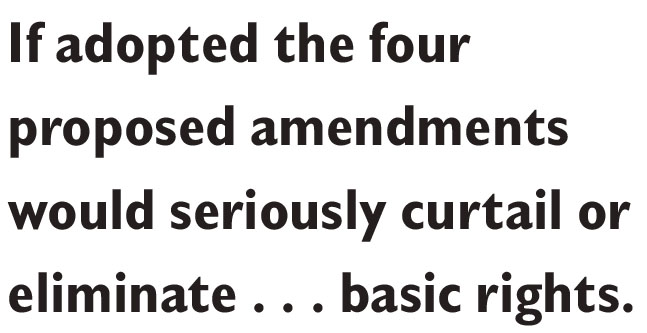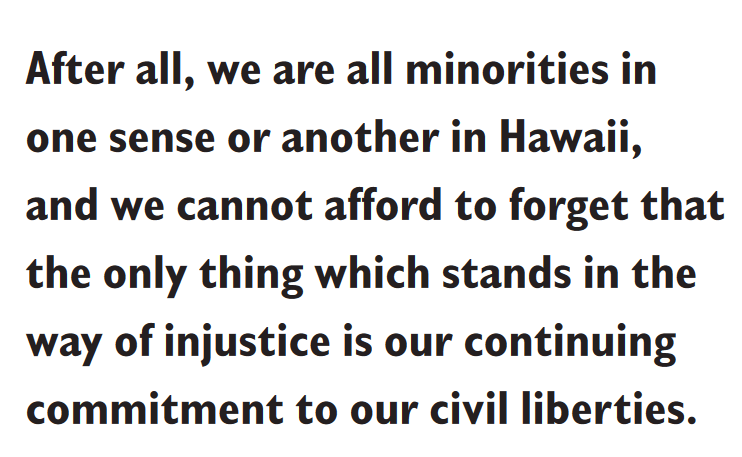On or about September 12, 1931, a wife of a young naval officer stationed at Pearl Harbor (Thalia Massie) claimed she was raped by five local males (2 Japanese, 2 Hawaiians, and 1 Chinese Hawaiian) at Ala Moana Park.
Although there were no signs on Ms. Massie’s body or her clothes that she was raped, and thorough physical examinations
of the males indicated no signs of the alleged crime, the five were arrested and tried. On December 5, 1931 the jury eadlocked. Before the case was retried Lt. Massie, two of his naval friends, and Thalia's mother arranged to have one defendant (Joe Kahahawai) kidnapped, and taken to a house in Manoa. They threatened Kahahawai with terrible things if he did not admit to the rape (which Kahahawai refused to do). One thing led to another and Kahahawai was shot to death. Those responsible were arrested just before the body could be disposed of at Hanauma Bay.
At first a grand jury consisting of mostly white men refused to issue an indictment. When the presiding judge declined their
report, the grand jury reconsidered and issued an indictment for second-degree murder. The Massie family hired Clarence Darrow, the most well known criminal lawyer in the country. Lt. Massie took responsibility for the killing, but relied on what is today considered an insanity defense. The jury found the four defendants guilty of manslaughter. On May 4, 1932 a sentence of 10 years in Oahu prison was imposed, but the territorial governor (Lawrence Judd) immediately commuted the
sentences from 10 years to 10 minutes. Subsequently, the Pinkerton Detective Agency conducted a thorough investigation of the Massie case and found that the five local males who were charged with rape had been framed.
The War Experience
After America was attacked at Pearl Harbor on December 7, 1941 approximately 110,000 persons of Japanese ancestry were interned in relocation camps on the mainland.
During the war 1,444 individuals from Hawaii were also interned with the cooperation and assistance of the territorial government (under martial law). In Korematsu v. United States, 323 U.S. 214 the U.S. Supreme Court upheld the relocation orders, emphasizing that the government's policies had been implemented in time of war. N early forty years later a residential commission found that the incarceration of Japanese Americans “was not justified by military necessity” but was motivated by “race prejudice, war hysteria, and a failure of political leadership.” Nevertheless, the decision in Korematsu became the law of the land in 1944 under the U.S. Constitution.
How should we vote on the constitutional amendments?

The Framers’ Intent
The delegates to the 1950 Constitutional Convention had first hand knowledge of the Massie case, the internment, and the unique aspects of Hawaii’s social history. They recognized that the U.S. Constitution which was formulated more than 150 years earlier did not necessarily reflect all the concerns of Hawaii's citizens.
They decided to establish fundamental rights which would supplement the rights in the U.S. Constitution, and mandated that
the justices of a state court selected from Hawaii would interpret those rights indepen dent of the U.S. Supreme Court. They wanted to prevent the type of injustices illustrated in the Massie case and avoid having opinions like Korematsu restrict our civil liberties in Hawaii.

Thus, Hawaii's Constitution now provides broadly for due process and equal protection of the laws regardless of race, religion, sex or ancestry. It requires a trial by jury in which jurors must unanimously find guilt for each separate occurrence. It specifies that the accused has the right to confront and cross-examine the accuser in search of the truth. It mandates notice and
opportunity to be heard before damage to one's reputation or livelihood by publication of past crimes can occur. It ensures that
no person is brought to a criminal trial unless a grand jury or a judge at a preliminary hearing finds probable cause of a felony. If adopted the four proposed amendments would seriously curtail or eliminate these basic rights.

Amendment 1.
The first proposed amendment authorizes a crime for “continuing course of conduct in sexual assault crimes” which would
allow a conviction on less than a unanimous agreement by the jury on all aspects of an offense such as the specific dates and incidents involved. Since there are four categories of sexual assaults including a misdemeanor it is vital that each offense be
considered separately and distinctly by the jury and that they unanimously agree on the same underlying criminal acts.
Proponents of the amendment contend that this change is needed because minors can't remember specific occurrences or
dates, but as drafted the amendment applies to all sexual assault crimes (not just involving children). More importantly, due
process requires that each occurrence be considered separately and the penalty be commensurate with the seriousness of the misconduct. You can’t comply with due process unless you require proof of each separate occurrence and convince each and every juror that such proof has been established.
Amendment 2.
The second proposed amendment would give “right of access” to information regarding “offenses against children and
persons convicted of sexual offenses.” The proponents of this amendment wish to overrule a decision of our Supreme Court in
State v. Bani, (who was convicted of a misdemeanor sexual assault in a bar for “groping” a young woman) requires notice and
opportunity to be heard on whether Mr. Bani presented a danger to society before the government could publish his name, residence, and past offense to his neighbors, employers and others. The law presently requires all sex offenders to register with law enforcement, and their whereabouts are already monitored by the police. The right to “due process” ensures that publication should only be made where true sexual predators (who pose an imminent danger to others) are identified so that neighbors can keep their children safe and report suspicious conduct to authorities. A case-by-case approach is the best means to ensure safety for our community, without violating civil liberties. As indicated in the Massie case, sex and violence (especially if there is a racial component involved) is an invitation to vigilantism. In the modern age of 24 hour news coverage worldwide all we need is one incident (of vigilantism) to irreparably damage our sensitive resort and hotel industry.
Amendment 3.
The third proposed amendment would grant an absolute privilege to communications between an “alleged victim” and a treating “physician, psychologist, counselor or mental health professional.” The proponents of this amendment wish to overrule a decision of our Supreme Court in Steve v. Peseti, where a child made statements to a counselor recanting accusations of abuse against a hanai parent. The court ruled that the accused had a right to disclosure of the records where there is no less intrusive source of the information and right to cross-examine the accuser regarding exculpatory statements
(which tended to clear the defendant). Pursuit of the truth is essential to our system of justice. In recent years DNA evidence has established that more than 100 persons were innocently imprisoned for sexual offenses they did not commit.
Amendment 4.
The fourth proposed amendment would authorize the “prosecuting officer” to initiate criminal felonies by “written information.” This is also known as “direct file.” It would eliminate the present requirement to have sworn testimony before a grand jury (of our peers) or before a judge in a preliminary hearing to establish probable cause of a major crime. Proponents of this measure say that police officers have better use for their valuable time than to appear in court. But, being charged with a felony results in immediate and irreparable harm to a person's good name, job, financial status, and standing in our community.
It may also mean pre-trial incarceration if an accused can't afford bail. This should not occur without sworn testimony before a
grand jury (which represents a cross section of our community) or a judge who can weigh whether the accuser and/or police officer is being untruthful, or determine whether the prosecutor is engaged in misconduct by excluding evidence of a person's innocence. Without live testimony there is no way to know whether the charge is trumped up. The Massie case teaches us that to protect the innocent there can be no compromise on our fundamental constitutional rights.
The Power Equation
As you know, the four proposed amendments are being sponsored or supported by those in powerful government positions today, including prosecutors, the attorney general, and the police. They have decided to focus on an unpopular minority,
i.e., those engaged in sex crimes. They appeal to our prejudices against such offenders in connection with proposed amendments 1, 2, and 3, and hope that the hysteria will impact your vote on proposed amendment 4 as well.

However, Hawaii’s social history indicates that when the rights of a minority are curtailed, it tends to diminish and impair all
of our fundamental rights and liberties. After all, we are all minorities in one sense or another in Hawaii, and we cannot afford to forget that the only thing which stands in the way of injustice is our continuing commitment to our civil liberties. I am pleased that the Hawaii State AFL-CIO shares this view and is urging all its members to vote no on the four proposed amendments.

